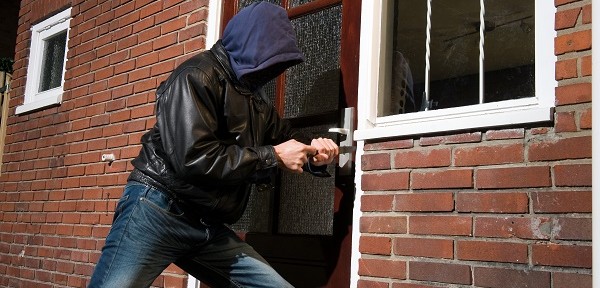 When do you have the right to use deadly force in self-defense? When will the law work with you, rather than against you, in the face of threat? In Ohio, the ability to use deadly force for self-defense – and not go to jail for manslaughter or murder – must meet certain standards.
When do you have the right to use deadly force in self-defense? When will the law work with you, rather than against you, in the face of threat? In Ohio, the ability to use deadly force for self-defense – and not go to jail for manslaughter or murder – must meet certain standards.
Duty to Retreat
If you are in public, on a street or in a public place, and you face a physical threat, you have what’s called a “duty to retreat” – in other words, rather than face the threat, you are required by law to do your best to escape from the threat by leaving, running away, or getting help from a peace officer. Only when the use of force is your only alternative will self-defense be found legitimate by a jury. Currently, the law in Ohio requires a defendant asserting self-defense to prove three things by a preponderance of the evidence (more likely than not):
(1) That the defendant was not at fault in creating the situation giving rise to the “affray.”
(2) That the defendant “had a bona fide belief that he was in imminent danger of death or great bodily harm and the only means to escape such danger was in the use of such force.”
(3) That the defendant “did not violate any duty to retreat or avoid the danger” as discussed above.
The Castle Doctrine
While you have a duty to retreat when threatened in public, Ohio is a “stand your ground” state when it comes to being threatened in your own home. You do not have to retreat if an intruder enters your home and threatens you or your family.
And intruders are the clearest cases where the Castle Doctrine applies and your argument of self-defense will not be questioned when someone breaks into your home and threatens your safety or the safety of your family. At that point, you are within your rights to use deadly force to defend yourself and your family from the intruder.
In order to be protected by the Castle Doctrine, the intruder must actually be inside your home or attempting to enter (coming in/breaking through a door or window). If the intruder is simply peeking through a window and has not made an attempt to enter, you need to call 9-1-1 and request assistance from the police. For the Castle Doctrine to apply, you must actually believe that your life or the lives of your family members are in grave danger.
There are limits to the application of the Castle Doctrine.
Invited Guests
You will not be able to use self-defense against a threat from someone who has been invited to be in your home, even if it was someone else (a spouse or child) who invited the person in. There are, of course, extenuating circumstances where this would not apply and you would be allowed to use the self-defense argument, but it is rare.
Other Residents
You cannot claim self-defense against other residents of your home. For example, you cannot kick your adult child out of the home then shoot them when they try to come back in.
Departing Burglars
As much as you might think you have the right, if the burglar or intruder is leaving your home, you are no longer protected under the Castle Doctrine, because your life is no longer in imminent danger.
Delivery People
You cannot use self-defense against postal workers or FedEx drivers who have short-term rights to be on your property. You also cannot use self-defense if you’re not home and arrive to find someone breaking in. Then, you must call the police.
The only other time the Castle Doctrine applies is if you are in your car and must act in self-defense to preserve your life. The same elements apply: you must not have invited the person into the car with you, you must not be able to flee or retreat, and your life must actually be in danger.
The Castle Doctrine is intended to protect homeowners from being threatened inside their own homes, but it is complicated. If you are being charged with a crime and believe you acted in self-defense, you need an experienced Ohio criminal defense attorney to help you navigate the criminal process. For more information and a free consultation, please contact Jeff Hastings, experienced Cleveland Criminal Defense Attorney.

